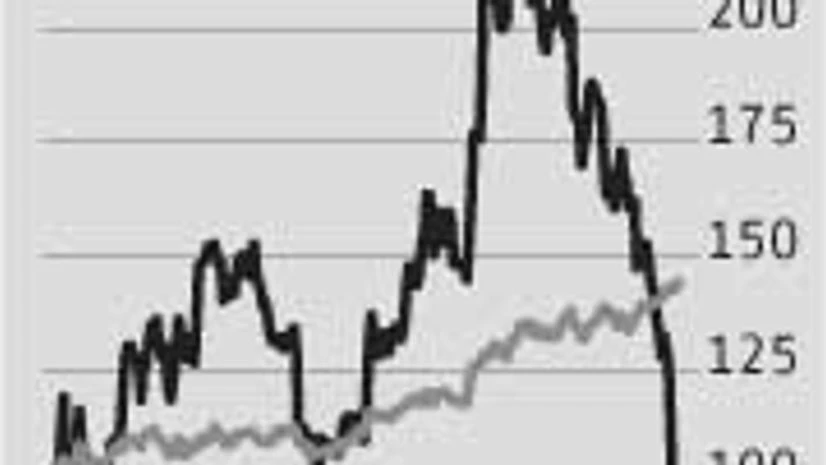After Jaiprakash Associates' promoters sold 13.5 million shares in the open market last week, the company's stock fell 20 per cent. According to analysts, investors are not that convinced by the company's explanation for the sale. While no further explanation might be coming from the management, the market is looking for risks that might emanate from the group for lenders. Even though the company has not defaulted on interest payment to large banks from whom it has borrowed, analysts think there could be some cash-flow mismatches.
Analysts are now assessing the risks to the banks that have given loans to the group, which has a consolidated debt of Rs 65,000 crore, with a standalone debt of Rs 25,000 crore and Rs 40,000 debt through subsidiaries. However, the Street is not overtly concerned about the risk of a default, as most of the loans are backed by hard assets and in case of a crisis, the write-down would not be significant. ICICI Bank, State Bank of India and IDBI Bank are the three largest lenders to the group, with exposure of Rs 12,800 crore, Rs 6,400 crore, and Rs 7,900 crore, respectively.
Other than these three, there are several other banks that have exposure to the group, such as Jammu & Kashmir Bank. However, other than ICICI Bank and J&K Bank, private banks have a limited exposure to the group.
More From This Section
So far, there has not been any default, but analysts claim the group could be facing some cash-flow issues. The reason behind the discomfort stems from the fact the promoter entity has sold shares at 30-40 per cent below the recent public issuance. Analysts claims they will monitor the group's debt-servicing ability closely, given the high exposure of banks.
The power subsidiaries have a debt of Rs 24,000 crore and the sale of hydro power assets could fetch the company Rs 8,000 crore. Other than this, the firm has Rs 17,000 crore debt tied up for three thermal assets at Nigre, Bina and Bara. The Supreme Court judgment on captive coal mines would impact its Nigre plant badly, which is the only asset considered to be risky.
Of its Rs 65,000-crore debt, Nomura considers Rs 46,000 crore as risky. The brokerage says: "We would like to reiterate most of these exposures are backed by hard assets and though there may be an interim cash flow mismatch (especially if the cash flows related to the hydro asset sale get delayed), ultimate write-downs should be lower."

)
